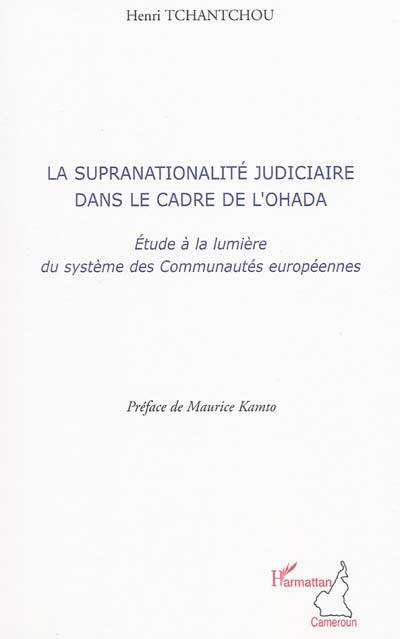
Fiche technique
Format : Broché
Nb de pages : 367 pages
Poids : 485 g
Dimensions : 16cm X 24cm
ISBN : 978-2-296-09184-9
EAN : 9782296091849
La supranationalité judiciaire dans le cadre de l'OHADA
étude à la lumière du système des Communautés européennes
Quatrième de couverture
La supranationalité judiciaire dans le cadre de l'OHADA
Étude à la lumière du système des Communautés européennes
En 1993, 16 Etats africains ont conclu un Traité dit de l'OHADA, afin de simplifier et uniformiser leur droit des affaires. L'unification normative s'est accompagnée d'une harmonisation juridictionnelle étayée dans le concept de supranationalité judiciaire. Selon cette règle, les juridictions nationales de fond des Etats membres de l'organisation statuent en premier et deuxième ressorts, à charge de pourvoi en cassation devant une cour communautaire appelée Cour Commune de Justice et d'Arbitrage.
Il y a ainsi dépassement du genre de rapport existant entre la CJCE (Cour de Justice des Communautés Européennes) et les juridictions des Etats membres de l'Union européenne, essentiellement basé sur un dialogue par voie de renvoi préjudiciel en interprétation des normes.
Mais la pertinence et la cohérence du système OHADA apparaissent parfois problématiques. C'est pourquoi, en explorant et critiquant le principe de supranationalité judiciaire OHADA, le présent ouvrage essaie, sur les plans à la fois actuel et prospectif, d'en élaborer une théorie générale.
Judicial supranationality within the set-up of OHADA
In 1993, 16 African States concluded a Treaty called OHADA in order to simplify and standardize their business law. The normative unification was accompanied by a judicial harmonization supported in the principle of judicial supranationality. This rule holds that, excepting supreme courts, the national jurisdictions of the member states should enact in first and second ressorts, under the control of the Common Court of Justice and Arbitration, which ultimately sits as third degree of jurisdiction.
The system therefore overtakes the existing relationship between the CJEC (Court of Justice of the European Communities) and the jurisdictions of the member states of the European Union, which essentially consists in a dialogue through the mechanism of the prejudicial return in interprétation of the community norms.
Nevertheless, the consistency of the OHADA System sometimes appears problematic. That is why, while explaining and criticizing the OHADA judicial supranationality, this book tries to elaborate a general theory ofit.






